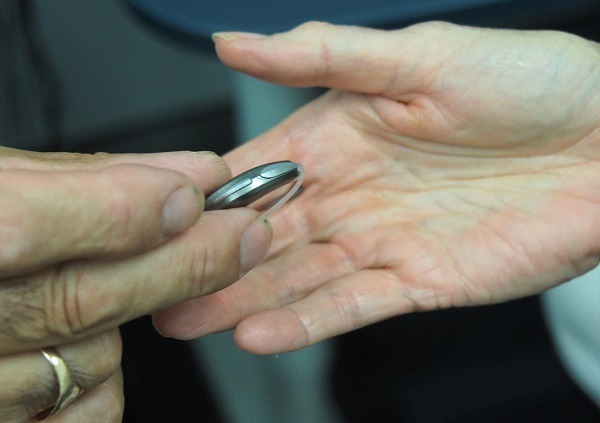You have noticed that you don’t hear quite as sharply as you used to. Perhaps your friends and family have encouraged you to purchase hearing aids, but you tell yourself that your hearing isn’t really that bad.
If this sounds like you, you’re not alone.
A much larger percentage of people experience mild hearing loss than those that experience severe hearing loss. In fact, a survey from the Centers for Disease Control and Prevention (CDC) showed that over 62 percent of people that report any trouble hearing without a hearing aid only have mild hearing loss.
So how bad does your hearing loss need to be to require a hearing aid?
When a Doctor Will Recommend a Hearing Aid
First, it’s always a good idea to have your hearing checked annually, even if you suspect you have perfect hearing. Therefore, be sure to take a hearing test either online or at your audiologist’s office.
In general, a normal hearing level is less than 20 decibels. Therefore, most audiologists will recommend hearing aids if the softest sound you can hear is 25 decibels or above.
Hearing loss isn’t considered a major disability until you reach an average air conduction hearing threshold of 90 decibels (dB) or greater.
So do you need to get a hearing aid if you are right at 25 decibels or just above?
Why You Might Want to Get Hearing Aids
In short, nobody can force you to wear hearing aids, but they can dramatically improve your quality of life and can also prevent related issues. Therefore, even if your hearing loss is only at 25 decibels, here are some reasons why you might want to get a pair of hearing aids.
Prevent Dementia
Numerous studies have shown that untreated hearing loss can lead to an early onset of dementia. This is because the brain has to work harder to comprehend conversations and other audio stimulants.
In addition, hearing loss often discourages people from socializing, which means the brain no longer has to work and ultimately starts shutting down.
Improve Relationships
An often overlooked aspect of hearing loss is that it also strains relationships. First, you’re probably less inclined to socialize because you can’t understand what anyone is saying. In addition, if other people around you have to adjust to your lifestyle (either by shouting to communicate or listening to the television at an obnoxiously loud level), it will likely strain relationships.
Prevent Depression
Hearing loss is strongly associated with depression. As you find it more difficult to communicate, you’ll slowly cut yourself off from society and simply avoid interaction with people.
Even if you’re an introvert, this loneliness allows you to spend too much time in your head and can ultimately lead to depression and even thoughts of suicide.
Next Step
Purchasing hearing aids is a big step and a significant investment in your own quality of life. Therefore, before making any decisions, be sure to take a hearing test and speak with an audiologist about the options available. Modern day hearing aids are much more discreet and comfortable than those even from ten years ago, so walk into the appointment with an open mind. You might be surprised!
About the Author
Pauline Dinnauer is the VP of Audiological Care at Connect Hearing, which provides industry-leading hearing loss, hearing testing, and hearing aid consultation across the US.

